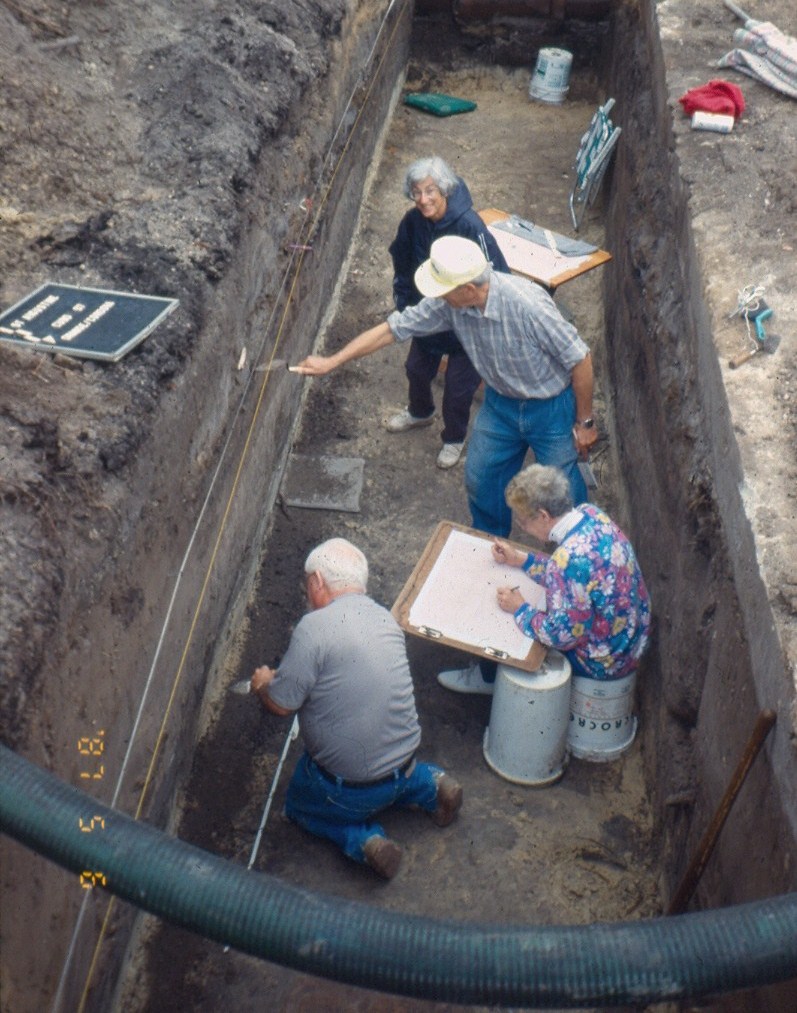Archaeology Program
The Archaeology Program of the City of St. Augustine, Florida, was established in 1990, and volunteers have been an essential component of the program since its inception. Community volunteers have been engaged in more than 650 archaeological projects. They have participated in field excavations, artifact analysis, storage and management of collections, creation and presentation of exhibits and programs, and public outreach.
A city ordinance requires archaeological investigations to be implemented both prior to and during ground-penetrating construction activities in designated archaeological zones. The intent is to understand how construction will impact archaeological deposits on affected properties while addressing broader research issues related to St. Augustine's history. Limited city staffing means that volunteers are critical to ensuring responsiveness to construction deadlines and needs.
Although many volunteers are retirees, the demographics encompass all age groups starting with young adults (15 years and older). Four students subsequently have pursued archaeology or some aspect of historic preservation as a career after participating as volunteers.
Each volunteer is trained by the City Archaeologist. Training initially occurs in the field and involves artifact recognition, excavation techniques, provenience labeling, data recording and mapping, and artifact storage. Volunteers also learn to analyze artifacts in the lab.
Volunteers are critical public outreach ambassadors. At dig sites, they explain to the public why the project is occurring, what types of information is sought, and what has been found, thus helping the public have a greater appreciation and understanding of St. Augustine's complex and multi-ethnic history.
Designated a Preserve America Steward in February 2015.
